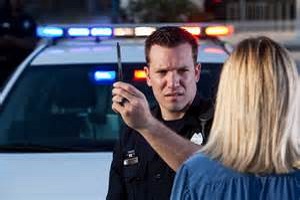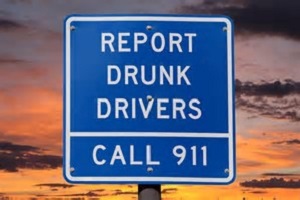
DWI/DWAI
Implied Consent Law
By driving a vehicle in New York, an individual is deemed to have
consented to take a chemical breath or blood test.
[Vehicle and Traffic Law § 1194(2)(a)].
The purpose of a chemical breath or blood test is to determine how much alcohol is in a driver’s bloodstream. If a person refuses to take such a test, their license can be revoked by the DMV for at least 1 year and be required to pay a $500 civil penalty. A driver is considered intoxicated in New York based on his or her Blood Alcohol Concentration (BAC).
Common New York DWI Charges
Drivers under the age of 21 are subject to the "zero tolerance" law,
which lowers the legal BAC level to 0.02%, punishable
with a $125 civil penalty and $100 fee to terminate suspension together
with a minimum 6 months license suspension.
[Vehicle and Traffic Law § 1192-a].
A driver who is not intoxicated, but whose ability to operate a motor
vehicle while their ability is impaired by the use of alcohol
with a BAC between 0.05 and 0.07 percent, can be
charged with Driving While Ability Impaired (DWAI), which is a
non-criminal traffic infraction in the same class of offense as a
speeding ticket, punishable with a fine between $300 to $500
and up to 15 days in jail together with a minimum 3 month license
suspension.
[Vehicle and Traffic Law § 1192(1)].
Regardless of whether a chemical test was administered to determine an
accused’s BAC, law enforcement can charge a "common law" DWI which
alleges a person was intoxicated from the totality of the circumstances
and is punishable with a fine up to $1,000 and up to a year in jail
together with a minimum 6 month license revocation.
[Vehicle and Traffic Law § 1192(3)].

Should a driver have an alleged BAC of 0.08 or greater, he or she will
likely be charged with a misdemeanor “per se” DWI punishable with a
fine up to $1,000 and/or a jail sentence of up to 1 year together
with a minimum 6 month license revocation.
[Vehicle and Traffic Law § 1192(2)].
If a BAC of 0.18 or greater is alleged, then a misdemeanor Aggravated
DWI will likely be charged with a fine up to $2,500 and up to a year
in jail together with a minimum 12 month license revocation.
[Vehicle and Traffic Law § 1192(2-a)(a)].
If a person is intoxicated and has a child in the car under the age of
16, then they can be charged with a class “E” felony punishable with up
to 4 years in prison.
[Vehicle and Traffic Law § 1192(2-a)(b)].
If an accused has a misdemeanor or felony conviction within the last 10 years, then a class “E” felony punishable with up to 4 years in prison can be charged. Should an individual have 2 or more predicate convictions within the same 10 year period, a class “D” felony punishable with up to 7 years in prison can be charged.
Hardship and Conditional Licenses
New York requires the driver’s license of a person charged with DWI to
be suspended pending prosecution. This means that they will lose
their
license even before they are convicted. However, the judge who
arraigns
an individual charged with DWI may issue a "hardship" license.
This
type
of driver’s license allows the accused limited driving privileges,
such as driving to work, school and medical treatment when an "extreme" hardship (as opposed to a mere inconvenience) is present, such as unavailability or unaffordability of public transportation.
[Vehicle and Traffic Law (“VTL”) 1193(2)(e)(7)(e)].
A motorist may also be eligible for a
"conditional" license from the DMV. To obtain a conditional license you must not have any alcohol-related convictions within the past five years and participate in the Impaired Driver Program (IDP), described in detail below. This license will allow you to drive to and from
work, accredited school, medical treatment, a required alcohol and drug rehabilitation program and an additional consecutive, three-hour, daytime block per week for personal errands, such as grocery shopping.
Impaired Driver Program (IDP)
The Impaired Driver Program (IDP), previously known as Drinking Driving Program (DDP), is part of New York State’s effort to provide participants in the IDP will receive an in-depth education regarding high-risk alcohol and other drug choices to assist them in identifying and changing high-risk behaviors. Participants also complete a preliminary screening designed to identify risk factors for a substance abuse disorder. Individuals found to be at risk for a substance abuse disorder will be referred for a comprehensive clinical assessment and referral to treatment if warranted.
As an IDP participant, you must attend seven weekly classroom sessions. Each session takes 2 to 3 hours for 16 hours total. When you satisfactorily complete the classroom sessions, your involvement in the IDP will end, UNLESS the program refers you for formal assessment and any resulting treatment.
IDP
participants may be referred for a formal substance abuse assessment by
a NYS court, the Department of Probation or the IDP. IDP referrals can
result from
•two or more alcohol or drug-related driving
convictions within 10 years
•arrest for an alcohol or drug-related
driving violation while enrolled in the IDP
•attending class under the influence of
alcohol or drugs
•a request by the student for help with a
substance abuse problem, or an admission that the student is currently
in treatment
If you are referred for assessment by an IDP, you must choose a provider approved by the Office of Alcoholism and Substance Abuse Services (OASAS). If you are not satisfied with the results of the assessment, you may ask the IDP director for a second assessment. However, you must accept the findings of the second assessment.
After assessment, you may be required to complete a formal substance abuse treatment program. If you fail to complete required assessment or treatment, you will be dropped from the IDP and your conditional license will be revoked.
In some instances you may be referred for assessment by a NYS court or probation office prior to enrolling in the IDP. If the assessment results in a determination that treatment is required, you must complete the treatment before the IDP will provide a completion certificate. It is important to understand that regardless of the referral source (IDP, NYS court or a probation office), if the assessment determines that treatment is required, you must complete the treatment in order to complete the IDP.
The
IDP will provide you with a “Notice of Completion” when all program
requirements have been met. This information will also be
electronically transmitted to DMV. Depending on your license status and
driving record, your license may be restored or you may become eligible
to apply for a new license. Your eligibility will be affected if
•you have two or more alcohol/drug related
driving violations on your driving record
•your
conditional license is under revocation
•you were under 21 when the
alcohol or
drug-related driving violation occurred
•you refused an alcohol or drug
test on the
date of the violation
•you committed the alcohol or drug-related
violation while operating a commercial motor vehicle
You
will be dropped from the IDP and lose your conditional license if
you
•do
not attend class, any required assessment
or treatment, or
•do not otherwise satisfactorily participate
in the program, or
•do not pay the program fees
If you are dropped from the IDP, you must obtain consent from the IDP director before re-entering. A re-entry fee of $50 is required, payable to the IDP. Drops reported to the DMV will result in the revocation of your conditional license/driving privilege. Participants can only be re-issued a conditional license one time.
At the time of sentencing, the court may issue you a conditional discharge (CD) that requires IDP completion. The DMV will notify the court if you do not enroll in the program, or are dropped from it. The court then may call you in for re-sentencing.
When you enroll in the Impaired Driver Program you must pay the Department of Motor Vehicles (DMV) a nonrefundable fee of $75.
After enrollment, you also must pay a fee directly to the program that will conduct your IDP classes. The maximum IDP enrollment fee is $225, payable to the program you attend. There will be additional fees if you transfer to another IDP or apply to re-enter a program you have been dropped from.
During the IDP course, you may be referred to a NYS OASAS approved treatment provider for formal assessment and, if necessary, treatment. If formal assessment or treatment is needed, you will have to pay additional fees to the agency that provides those services.
Participation in the IDP is available on a voluntary basis if you have been convicted of an alcohol or drug related driving violation, unless you have participated in the program within the last 5 years, or have been convicted of another alcohol or drug violation within 5 years of the current alcohol or drug violation. However, these limitations do not restrict the ability of the court to mandate participation, even if you have already attended an IDP within the previous 5 years. In such situations, participation will be required, yet you will not be eligible for a conditional license or privilege.
Ignition Interlock Device (IID)
Installation of an Ignition Interlock Device (IID) is required for all misdemeanor and felony DWI convictions in the State of New York for a minimum of six months. An ignition interlock device is a machine that is connected to a car’s ignition and checks the driver’s blood alcohol content level. The driver has to blow a breath sample into the machine to start the car and, from time to time, while the car is running. If alcohol is detected, the car either does not start or turns itself off. NY requires drivers to purchase and install their own IIDs. Drivers also are responsible for any costs related to the monthly fee, switching the IID to another vehicle, and uninstalling the IID. Driving a vehicle in violation of an ignition interlock order (without the device) is a misdemeanor crime.
An attorney may be able to plea bargain a DWI to a lesser offence. In addition, they can help you to obtain a "hardship" licence while you case is pending and navigate the intricate requirements of the Impaired Driver Program (IDP)
If you seek to contest the DWI charges a lawyer can request a jury trial, challenge the evidence against you and cross-examine the government's witnesses. In addition, they can help you to decide if you want to testify and subpoena witnesses on your behalf.



